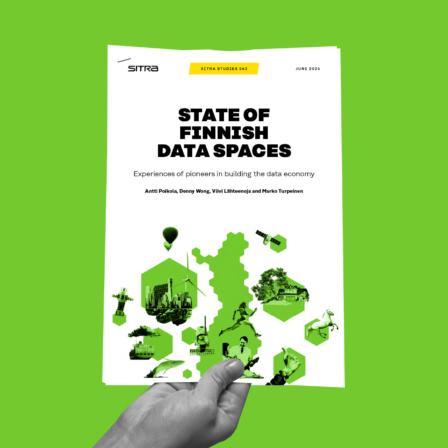The inaugural, fully booked Nordic Data Festival 2024 brought together data business pioneers from across Europe in Helsinki on 10 April.
The event, which brought together private and public stakeholders, was in high demand. The joint effort by Sitra, VTT, Business Finland and Snowflake attracted more than 350 interested visitors.
The event focused on the business opportunities offered by data space technologies. Data spaces are new technologies for sharing data across organisational boundaries.
Data spaces create opportunities for companies to accelerate growth and innovation, secure access to critical resources, and enable data to be sold or shared among multiple actors. Data space technologies are particularly relevant now, as they also serve as enablers for the development of AI solutions.
The digital future demands new thinking from businesses
In the near future, the data economy will be an essential part of business in most industries. Despite this, only a fraction of Finnish companies see data as a critical part of their business. To be interested in the data economy, companies need to be able to create value from data or understand how data can be used to improve their operations.
To benefit from data resources, companies need to develop business models that can exploit data outside their own organisation. The majority of Finnish companies still have a long way to go.
On the other hand, internationally, the data economy is already a very lucrative business. By its very nature, it is the first movers who reap the greatest benefits. The larger the volumes of data you can access, the greater the head start you gain.
More than 30 data space projects in Finland
Finland is undoubtedly one of the most advanced data space countries. We have more than 30 data space projects in 15 different sectors involving more than 100 organisations. However, Finnish data space projects are mostly at an early stage, and the number of business participants is low compared to European standards.
The accumulated data space expertise should be made more widely available to Finnish industry. Failure to do so will mean a missed opportunity and risk for the development of the Finnish data economy.
There is no need to look beyond Europe for good examples. Catena-X, presented at the event, is an ecosystem of automotive brands, including Volkswagen, BMW, Mercedes and Ford. The data shared by the network will help carmakers to report emissions more effectively and trace the origin of materials used in cars. It is also worth following such developments in Finland.



